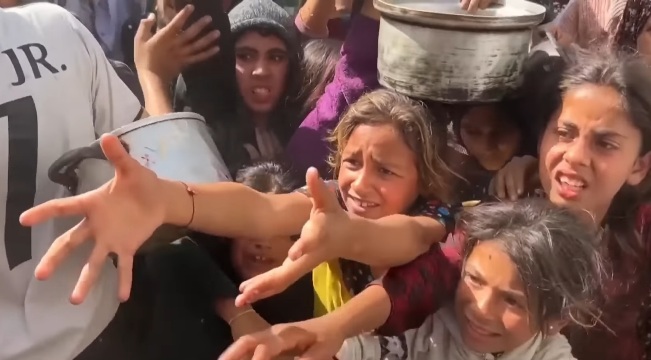Nearly two million Palestinians in Gaza are facing what United Nations officials have described as a deliberate and systematic policy of starvation, carried out through a tightening siege by Israeli forces. Speaking at the 51st session of the Organisation of Islamic Cooperation’s Council of Foreign Ministers in Istanbul, UNRWA Commissioner-General Philippe Lazzarini denounced the use of food as a weapon, calling it an unprecedented humiliation of a civilian population occurring with total impunity.
Since late May, at least 450 Palestinians have been killed and over 3,400 injured while attempting to reach aid distribution points in the Gaza Strip. A further 39 remain unaccounted for. These aid points, according to humanitarian officials, operate without UN coordination and are directly supported by Israeli and US authorities. Eyewitness reports and footage have pointed to targeted fire on civilians gathering in desperation for basic sustenance, turning humanitarian sites into deadly ambushes.
The distribution scheme, known locally as “The Gaza Humanitarian Foundation”, was launched without international oversight, replacing formal humanitarian channels. Human rights monitors have described scenes of chaos, looting, and fatal overcrowding, as hunger and fear permeate the population. The siege has left Gaza’s residents in a state of extreme vulnerability, where the search for food now entails significant risk to life.
The Israeli military has maintained a near-total blockade of aid convoys since March, sealing off entry points to food, medicine, and fuel. While a limited number of trucks are sporadically permitted through the Kerem Shalom crossing, this represents a fraction of the estimated 500 daily trucks needed to meet minimal needs for Gaza’s 2.4 million residents.
According to legal experts and UN officials, the systematic denial of food and essential supplies constitutes a grave breach of international humanitarian law. Starvation, when used as a method of warfare, is expressly prohibited under the Geneva Conventions and may amount to a war crime or crime against humanity.
The siege, now in its eighth month, has led to the collapse of Gaza’s healthcare system, a public health emergency marked by the spread of disease, rising malnutrition, and growing child mortality. The UN and other humanitarian agencies warn that these conditions are exacerbated by large-scale displacement, the destruction of critical infrastructure, and repeated attacks on health facilities.
Human rights observers have also documented a broader pattern of demographic engineering through forced displacement, particularly targeting refugee communities in Gaza and the West Bank. These practices, including the destruction of homes and refugee camps, have drawn international condemnation and raised concerns over long-term plans to alter the demographic character of occupied Palestinian territories.
Since the outbreak of hostilities on 7 October 2023, Gaza has endured what numerous legal experts describe as acts consistent with the definition of genocide. These include the deliberate targeting of civilians, destruction of infrastructure essential to life, and the deprivation of food, water, and medical care. To date, the conflict has resulted in more than 187,000 casualties and over 11,000 missing persons, many believed to be buried under rubble.
Amid this humanitarian catastrophe, international legal mechanisms have so far failed to halt the violence or ensure accountability. The continued political and military backing of the blockade by powerful states has been cited by legal scholars as a key factor sustaining impunity.
As global attention lingers, Gaza remains on the brink of complete societal collapse. The situation now stands as a critical test for the international community’s willingness to uphold the principles of human rights and protect civilian populations from collective punishment and starvation.



























